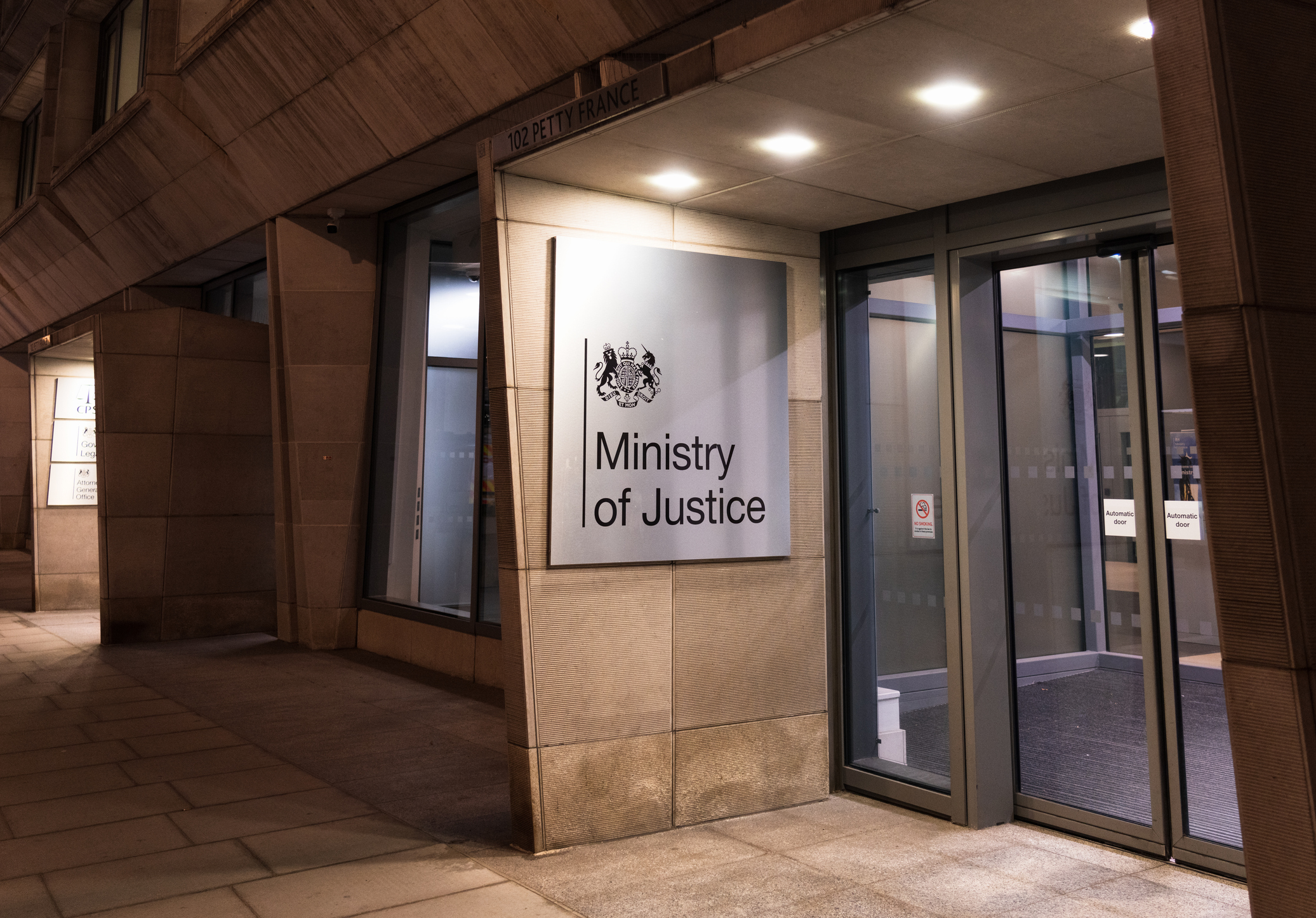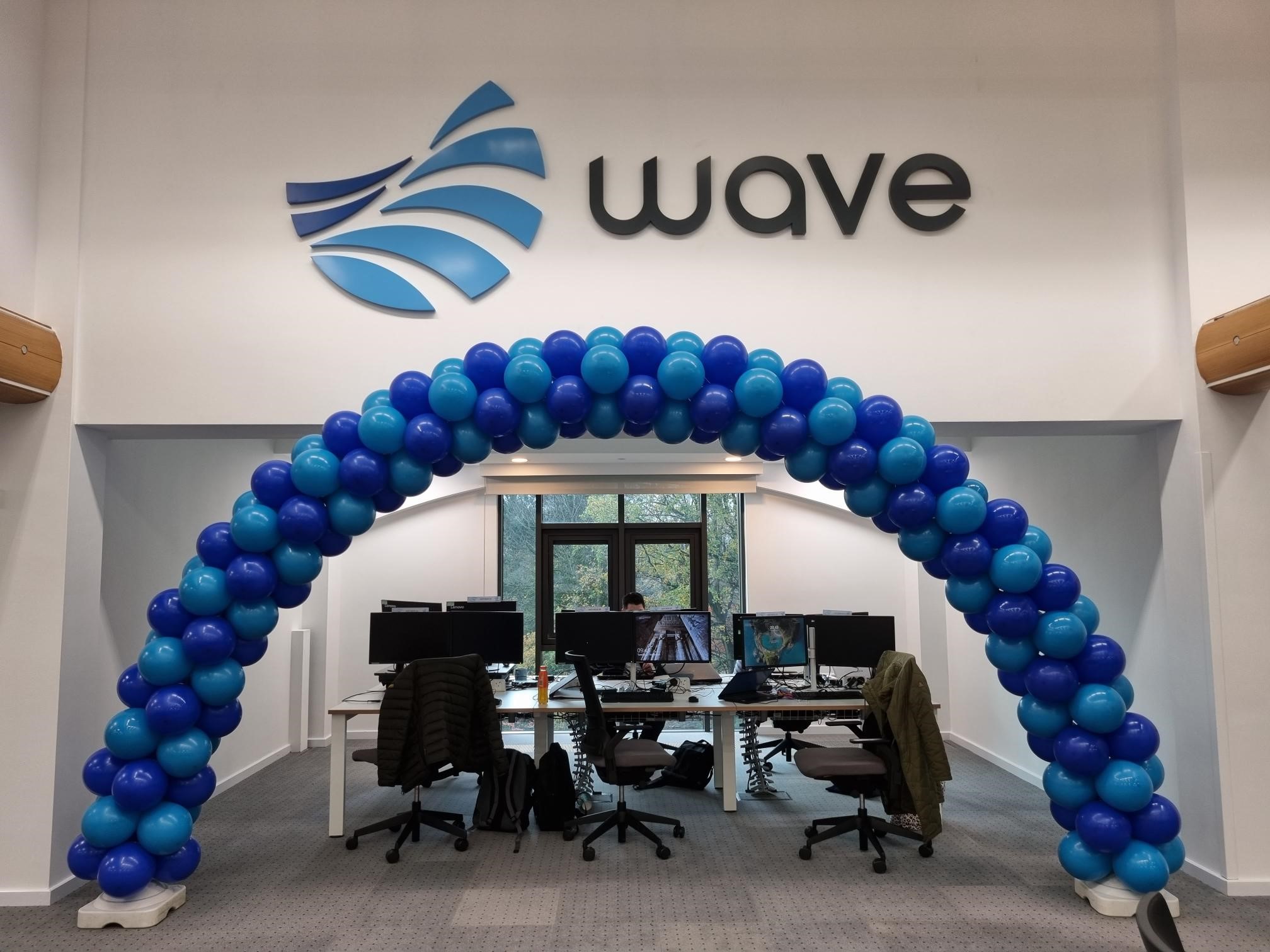Breaking Waves
We're pleased to bring you the latest edition of our newsletter.
We’ve won a multi-million pound contract with UK Ministry of Justice
We’re proud that we’ve recently won a substantial public sector contract with the Ministry of Justice, following a competitive tender through the CCS Water framework. The three-year contract, which commenced in January 2024, comes with an option to extend for a further year and is expected to generate annual water revenues of around £28m.
The contract is our second large contract win in recent months, having successfully secured the sole position on YPO’s direct award water framework in September for a second consecutive term.
Social value formed a key part of the Ministry of Justice’s criteria for award of the contract, and we were able to demonstrate our social value credentials and customer focus through our Social and Sustainability Promise.

We’re prioritising sustainability and smart growth by downsizing to a smaller North East headquarters

We’ve recently moved into a new head office in the North East, downsizing in a bid to enhance sustainability, while still focusing on growth.
In 2023 we welcomed 38 new starters to our team, but since our 324-strong workforce adopted a successful hybrid working model following the pandemic, our former head office in Pity Me became too large a space. The decision to relocate to a smaller office was driven by the desire to maximise energy efficiency and recreate our community feel with a more collaborative working space.
We now occupy a 3,658sq. ft. space within Salvus House in Aykley Heads, along with a second office in Peterborough.
We’ve chosen to donate any furniture that wasn’t included in the move to Crown Workspace. Its sustainable ‘Giving Back’ project ensures any furniture that cannot be reused or recycled is then donated to charities, schools and social enterprises.
Customer Protection Code of Practice Consultation – what is happening and where it’s at now
Ofwat’s Customer Protection Code of Practice (CPCoP) outlines the minimum standards of service that Retailers must maintain for customers they supply in England and Wales. It’s important in making sure the interests of non-household customers are protected.
Since its implementation when the business retail water market opened in 2017, there’s been nine consultations to amend aspects of the code, ranging from enabling Micro-Businesses to conclude a contract orally, increased customer credit protections and applying additional customer protection measures during the COVID-19 pandemic. However, until now there’s been no review of the entire CPCoP.
With the market being in operation for nearly seven years, Ofwat decided to review the extent to which the CPCoP is providing effective protection for business customers and consider whether changes may be necessary. Wave supported a review as the market continues to evolve and customer expectations develop.
The call for inputs
In April 2023, Ofwat released a Call for Inputs (CFI) asking for input on how the CPCoP could be strengthened. It specifically asked for views on areas including whether levels of protection should be different for customers depending on size or vulnerability, whether protections needed to be increased for emergency events and whether changes were needed to increase customer awareness. It also asked for views on anything missing and whether there were contents that had become redundant.
We welcomed the review as there were some areas that needed changes, for example, areas that were unclear and subject to different interpretations which resulted in differing customer protection. We supported changes which provided clear minimum standards for customers, leaving Retailers able to develop new, different and innovative services above the requirements as competitive offerings creating greater customer choice.
Tranche 1 Consultation
In September 2023, Ofwat released the first consultation based on the findings from the CFI. Ofwat decided to manage the consultation stage in two tranches, tranche 1 to cover straightforward and minor changes such as removing redundant sections and tranche 2 to cover more in-depth changes.
We found tranche 1 changes to be straightforward and agreed to them all. The only proposal that impacted customers was the removal of COVID-19 protections which were no longer needed.
Tranche 2 Consultation
The tranche 2 consultation was released in December 2023 with Ofwat proposing 25 changes (full list on p74 of consultation).
Some of the key proposed changes were:
- Extend the micro-business protections to businesses with 10 to 50 employees
- Include principles of good practice for Third Party Intermediaries (TPIs) and Retailers to only work with TPIs who operate in accordance with these principles
- Increased support for customers that have had a switch attempt blocked
- Increased protections for customers in vulnerable circumstances
- Greater transparency for customers on how to complain
- The collection of customer contact details for use in emergency and unplanned events
- Requirement of Retailers to issue two accurate bills per year based on actual meter reads
We had mixed views on the proposed changes which we submitted to Ofwat. There were some that we were supportive of, such as the TPI requirements and the support for customers with blocked switch attempts. Some changes seemed disproportionate to an issue or customer harm that hadn’t been evidenced, for example, holding 24/7 customer contact details for every customer is both impractical (ever-changing) and unnecessary because most business customers don’t require constant access to water. Other changes will not address the root cause of the issue they’re seeking to resolve. For example, the proposal to require Retailers to issue two accurate bills per year will not enable any better compliance with this. Retailers are already incentivised to read meters, the reasons why meters cannot be read include no accessibility, broken meters etc. These all need to be tackled, but penalising Retailers through a CPCoP requirement will not assist.
What happens next?
Ofwat is currently in the process of reviewing all consultation responses and is aiming to publish a further consultation on the proposed changes with legal text amendments within the first half of 2024, with the intention of the review being finalised later in the year.
We’ve expanded our High Consumption Alert offering to support sustainability
All our customers, including SMEs, will now receive free High Consumption Alerts (HCAs) to support their drive to become more sustainable and identify potential issues and cost savings.
HCAs use the meter read data submitted by customers and our meter readers to support them by monitoring water consumption, helping them to gain a better understanding of their usage. HCAs can also help to highlight any potential leakage or inefficiencies within a business as they'll be alerted if their consumption increases by around 20% more than their average read. These alerts can then be actioned to prevent water waste and excessive usage resulting in monetary savings.
Lissa Balmer, Director of SME Customers at Wave, said: “We’re pleased to introduce this new service to our SME customers and are keen to work with them to support their water efficiency. Undetected or unaddressed leaks not only waste water, but also waste our customers’ money. We’re using meter read data to highlight changes in their usage and give them the power to investigate and address any unexpected consumption as soon as it’s recorded. The more frequent reads we receive, the sooner we can identify any abnormalities or potential cost savings, so we encourage all our customers to take and submit regular reads, if it’s safe to do so.”

Over 1,000 trees planted this year
We organise corporate volunteering events around the country each year, where we invite our customers to join us in doing some good for nature or the community. This year we’ve been concentrating on improving environments for nature and increasing carbon capture by planting trees.
In November 2023, we were joined by NEPO and Northumberland County Council in a scheme to plant trees around Stamfordham Cricket Ground as part of the Great Northumberland Forest project. Working together with our employees and customers, we planted 450 trees in one day.
On 9th February, customers from Frasers Group and UK Power Networks Ltd joined Wave employees at Deeping Gate near Peterborough where we planted a Mayawaki mini forest on the banks of the River Welland. We planted 350 trees which helps to create rich biodiversity and protect the trees from drought.
One week later, on 16th February, Wave colleagues got together with Wear Rivers Trust and Tree Appeal on the banks of the River Brownie at Bearpark, County Durham where we planted the Wave Woodland. 600 trees were planted, including a tree for every Wave employee. We look forward to watching our forests grow and mature to join the green canopy in England that will be providing habitats and capturing carbon for many years to come.
We're calling for water industry to pay attention to ageing meters
Following the completion of an industry-first project, delving into the lifespan on Non-Household (NHH) water meters, we’re calling for the industry to pay closer attention to the issues surrounding ageing meters as we’re concerned by the potential number of water meters which are currently in use, but not recording any consumption.
The project, funded by the Market Improvement Fund and supported by data collection provider, Occutrace, established that the root cause of many non-consuming meters is that the meter has surpassed its operational age, making it increasingly likely to fail.
The investigation discovered that of the 771 meters identified as zero-consuming, 64% of these were found to be degraded to the extent of non-functionality. This finding has substantial implications for customers, Retailers and Wholesalers, with customers facing the potential repercussions of inaccurate billing, Retailers having to correct and revise the bills and Wholesalers seeing the impact inaccurate metering can have on the settlement process.
We’ve partnered with Infersens to revolutionise legionella management practices
The latest Market Improvement Fund winners have recently been announced and following our success with Project No Flow last year, we're delighted to have received funding for this latest project in partnership with water technology specialist, Infersens, where we aim to harmonise a reduction in water usage, with water safety and the effective management of Legionella risk in non-domestic buildings.
As it stands, more than 7 million business premises across England manually carry out weekly and monthly water monitoring regimes, as part of their Legionella risk management (LRM) strategies. This includes flushing out taps and systems on top of regular daily use to avoid the Legionella growth conditions of lukewarm and stagnating water. It’s estimated that these LRM activities could account for up to 8% of total non-household (NHH) consumption.
Over the coming months, we'll be looking for a selection of our customers to have the opportunity to trial Infersens’ innovative, remote, retro-fit flow/temperature sensors, which could significantly reduce the water used in their LRM activities. This’ll be achieved by using the data collected by the sensors which will read the temperature profiles and confirm the taps and systems that have had sufficient flow in the past week, and so present low risk of Legionella and don’t need any manual intervention.
If you're interested in taking part in this trial, please let your account manager know or look out for more information on how to register your interest on our website next quarter.
Win an Automatic Meter Reader
We're asking businesses and organisations to commit to one of our achievable pledges to help save water. You'll be entered into a prize draw where you could win an Automatic Meter Reader.
Get involvedInstitute saves £50,370 with AMR alerts
See how installing two Automatic Meter Readers proved their value within the first 18 months and saved over £50,000.
Read case study